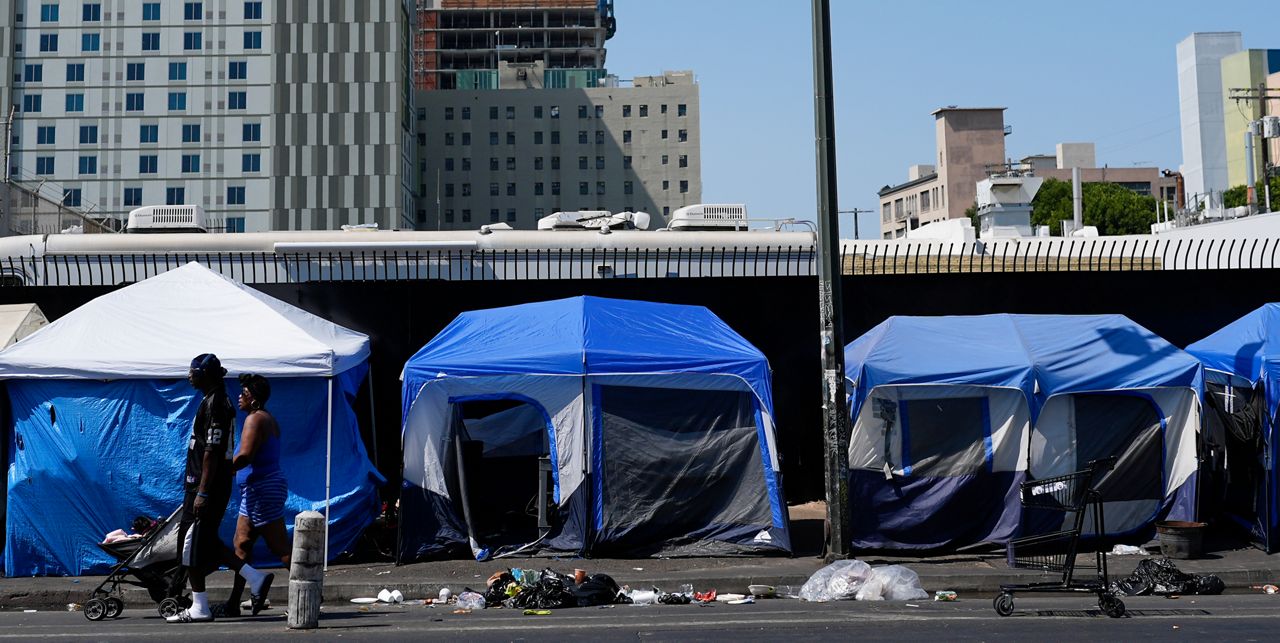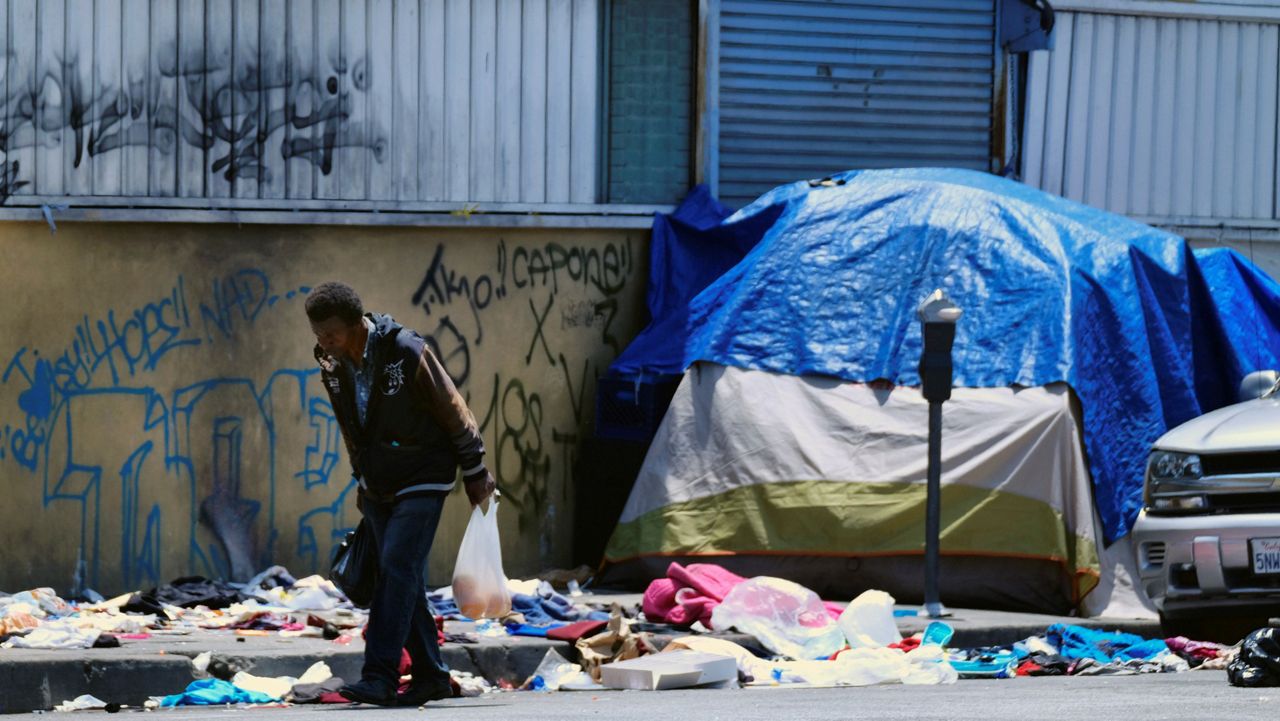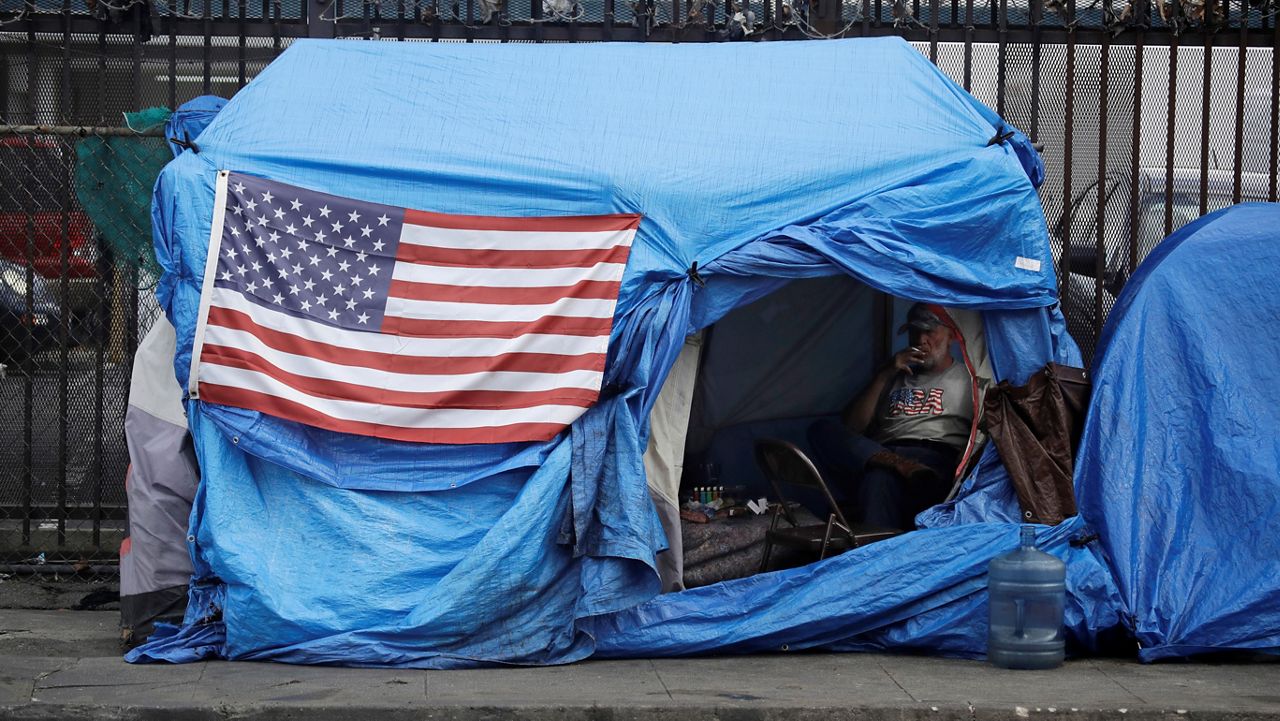LOS ANGELES — Over a five-year period from 2019-23, one in four city-funded shelter beds went unused, costing Los Angeles taxpayers an estimated $218 million, City Controller Kenneth Mejia announced Tuesday.
Mejia's office released the findings of an audit Tuesday evaluating the Los Angeles Homeless Services Authority's performance in transitioning people from interim to permanent housing. In that span of five years, only one in five interim shelter residents were placed into permanent housing, while more than half returned to homelessness or unknown outcomes, data showed.
"This is unjustifiable especially given that there's a massive bed shortage," Mejia said in a statement. "Any bed that goes unfilled means an unsheltered person living on the streets is waiting longer than they need to move into a safer space and begin their path to permanent housing."
Officials have cited several challenges preventing unhoused residents from acquiring permanent housing. Mejia noted that when a person receives a voucher or subsidy to secure permanent housing, they often face discrimination that makes it harder for them to get a lease.
"Local lawmakers should pass legislation that would prevent landlords from requiring credit checks for people using vouchers or subsidies — this is something that has already been proposed at the state level but has not been implemented," Mejia continued. "It would eliminate an unnecessary barrier to permanent housing."
Mayor Karen Bass' office did not immediately respond to a request for comment.
LAHSA officials said many of the findings occurred before the current leadership took charge, and issues are being addressed as part of the agency's ongoing commitment to change and transformation.
"Many of the findings affirm the areas my team and I have prioritized for improvement since day one," LAHSA CEO Va Lecia Adams Kellum said in a statement. "We came here to change things for the better, and I appreciate that the issues the controller identified largely align with system improvements we have been implementing since my arrival."
The agency noted the audit period covered a time of rapid expansion for the city's interim bed portfolio largely driven by the coronavirus pandemic, as well as a settlement with the LA Alliance for Human Rights that committed up to $1.24 billion in additional funding to provide beds for people with mental health and substance use disorders.
The controllers' audit found interim housing/shelter bed occupancy was significantly below the homeless agency's target rate of 95%.
Findings once again highlighted severe data quality issues, which the agency has taken steps to address.
LAHSA recently unveiled new dashboards and monitoring systems to better track occupied, available and offline beds, as well as programmatic performance and financial metrics, which can be viewed on its website.
Among other issues, the audit criticized a lack of formal policies guiding reservations of shelter beds. The City Council and Mayor Karen Bass' office request use of beds at times based on geographic zones, prior to encampment cleanups or anti-camping enforcement operations.
The audit also found that time-limited subsidies had the best outcome for homeless individuals securing permanent housing with a success rate of 39%. People in permanent supportive housing had a success rate of 13% of securing a stable home.
Representatives for the homeless agency reported that some changes implemented early on in Kellum's tenure led to a record 18% increase in permanent housing placements in 2023 with nearly 28,000 individuals housed.
In the last 18 months, LAHSA implemented changes to improve the rehousing system, such as expediting contracts, revising its bidding process, hiring a new chief financial officer and reshaping its staff to improve communication and streamline work flow.
"LAHSA is deeply committed to continuous improvement and collaboration with all our stakeholders to continue making significant changes," Kellum said in a statement. "We must be vigilant in optimizing the interim housing system to maximize its effectiveness for people experiencing homelessness in Los Angeles, who are counting on us to do better for them."
The controller provided several recommendations for the city and LAHSA to consider to improve rates of placing unhoused residents into permanent housing, including but not limited to:
- Formalizing reservation policy;
- Improving data quality of bed capacity;
- Adding more housing navigators;
- Consolidating contracts.
The audit emphasized how vital it is to expand the supply of permanent housing to reduce homelessness.
"People cannot be placed into permanent housing when the housing does not exist," according to Mejia's office.












)